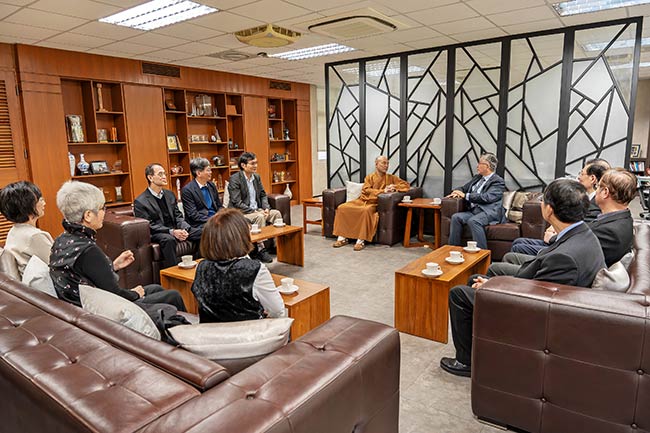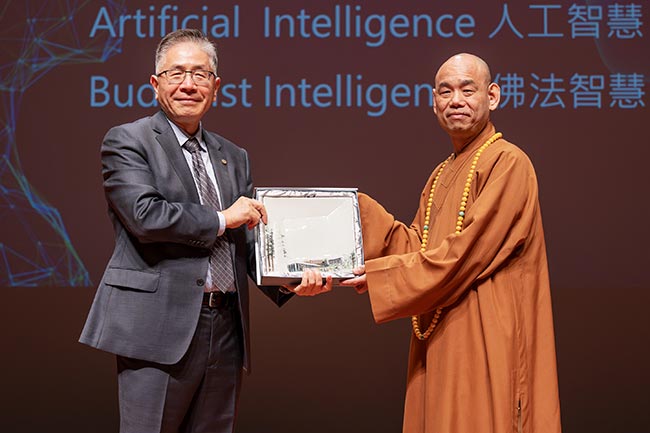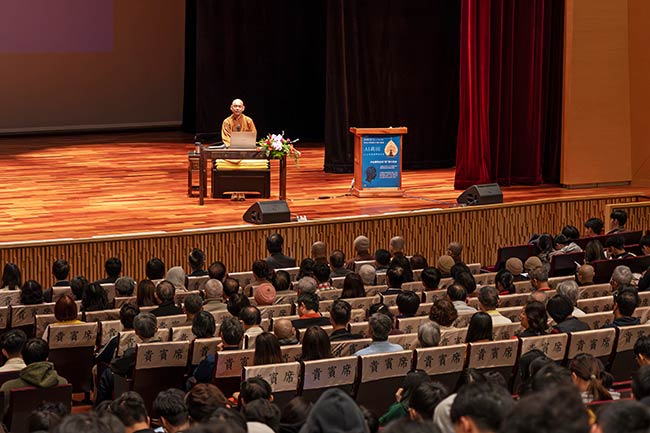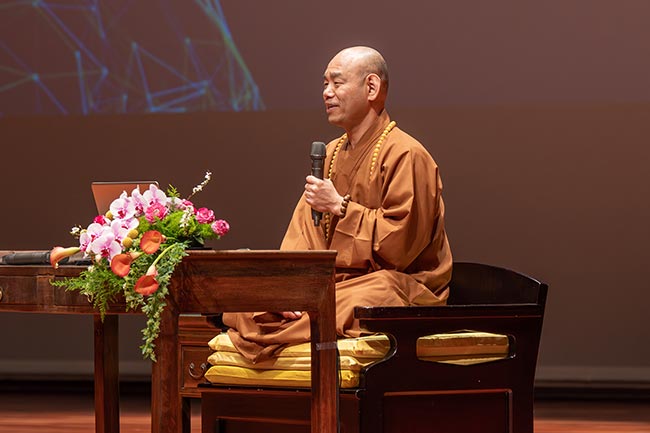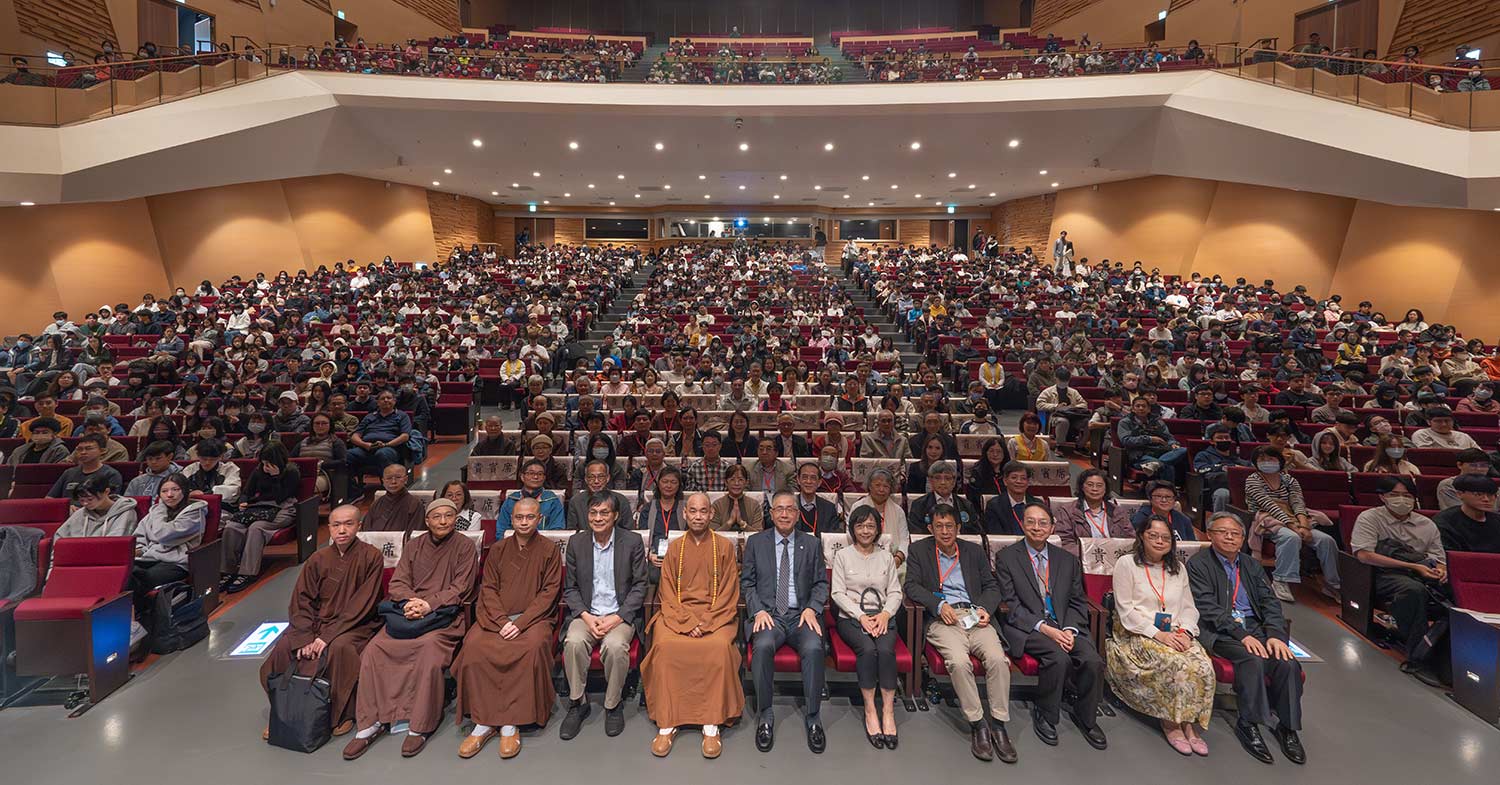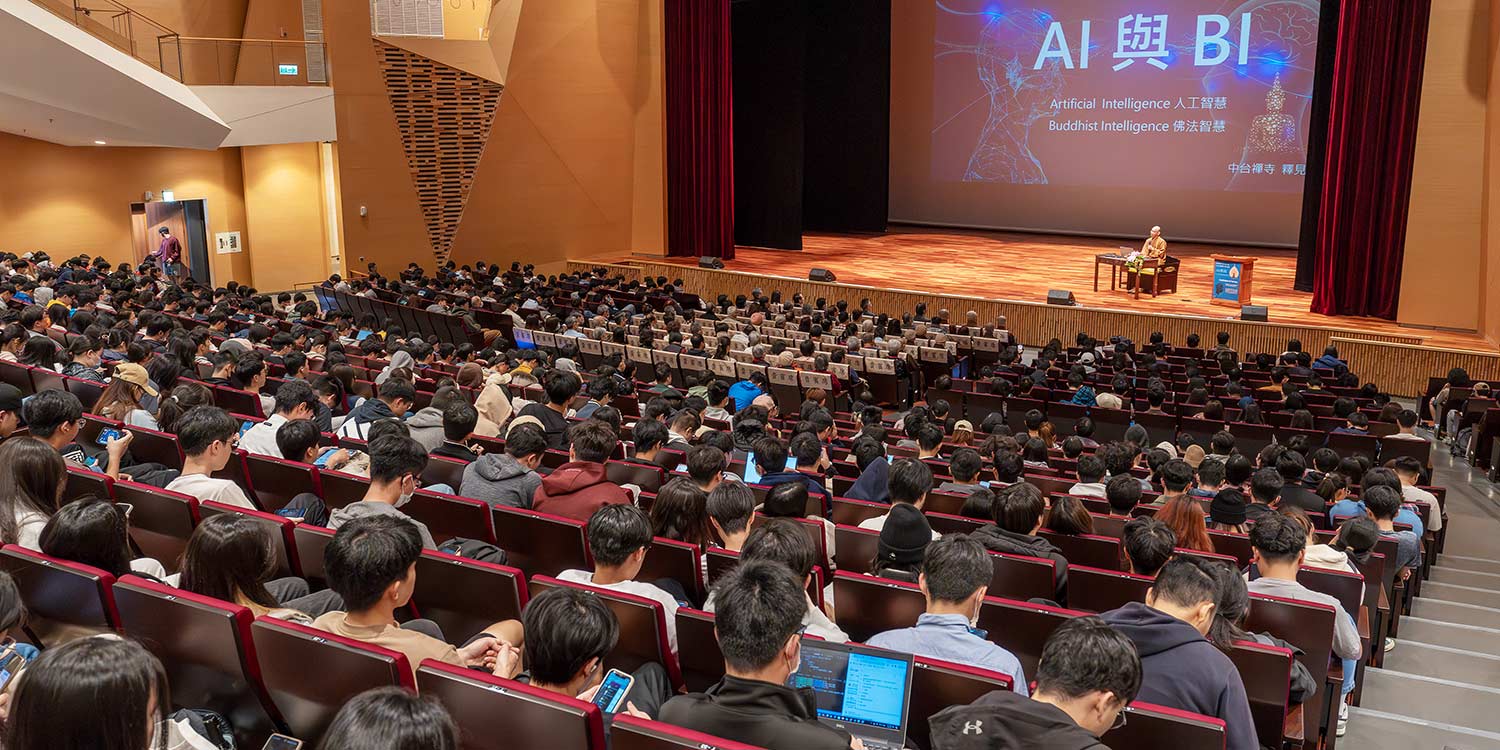
AI & BI—Artificial Intelligence and Buddhist Intelligence
Venerable Abbot Jianying's Lecture at National Central University
On March 5th, 2024, Venerable Master Jianying, abbot of Chung Tai Chan Monastery, was invited to deliver a lecture at National Central University in Taiwan. His topic, “AI & BI—Artificial Intelligence and Buddhist Intelligence,” attracted an audience of over 1,300 students, faculty, and researchers from various academic disciplines. Abbot Jianying explained how Buddhist intelligence (BI), such as the wisdom of dependent origination and emptiness, could help address many concerns surrounding artificial intelligence (AI) in this uncertain era. Through BI, he emphasized, all people can awaken their minds and learn to use AI to create a brighter future for humanity.
Buddhist Wisdom: the Non-Duality of Emptiness and Existence
To start his lecture, Abbot Jianying gave an overview on the current state of AI and some of the challenges it faces. He then shared key Buddhist teachings, including dependent origination, emptiness, delusion, awareness, and non-duality. The abbot also recited a verse by Chan Master Chuanzi Decheng:
The fishing line drops a thousand feet into the water,
One ripple stirs up ten thousand waves,
Still night, cold water, the fish do not take the bait,
The empty boat returns, filled with the moonlight.
The abbot explained the Buddhist principles within the verse, and how they could be applied in our daily lives to achieve a state of non-duality between emptiness and existence.
“The fishing line drops a thousand feet into the water” can be interpreted as a metaphor for profound tranquility. By regularly turning our awareness inward, we can uncover deep calm within our minds—this is the foundation of Buddhist practice. With the dedication of 10,000 hours—the time needed to master any skill—we can experience the unshakable peace described in the poem.
The more tranquil the mind, the more stable it becomes. When our minds are at peace, we are no longer easily swayed by external circumstances. Without this inner peace, “one ripple stirs up a thousand waves.” It is like throwing a rock into water: if we stay on the surface, we will be tossed about by the waves. But if we rest deep at the bottom of the lake, no matter how tumultuous the surface is, we remain unaffected.
“Still night, cold water, the fish do not take the bait.” As night falls, the lake stills and the water gradually clears. With stability comes clarity, and with clarity comes wisdom. In this state, we can see clearly that behind the bait is a hook. Thus, the fish do not bite. Without the clarity of wisdom, we are like fish that take the bait and are immediately caught. Therefore, to realize the non-duality of emptiness and existence, we must have both deep inner peace and the mental stability derived therein. With stability comes the clarity of wisdom, creating a state where it is a “still night, cold water,” and “the fish do not take the bait.”
Furthermore, imagine reaching a point where “the empty boat returns, filled with moonlight.” This profound and meaningful metaphor expresses the benefits of cultivation. The boat is a symbol for our body and mind. The empty boat symbolizes a mind free from worries and burdens, at ease and unattached. Yet, emptiness does not imply a lack of substance. Instead, the mind embraces the non-duality of emptiness and existence. “Filled with moonlight” signifies the presence of wisdom and warmth, which embodies compassion. This verse captures the essence of Buddhist practice. Only through dedicated practice, can we achieve such a state.
